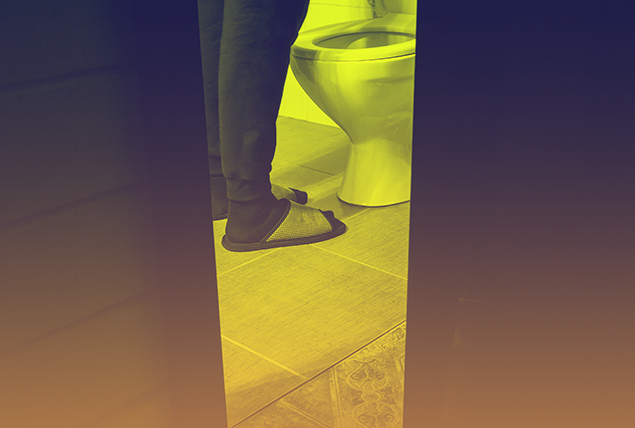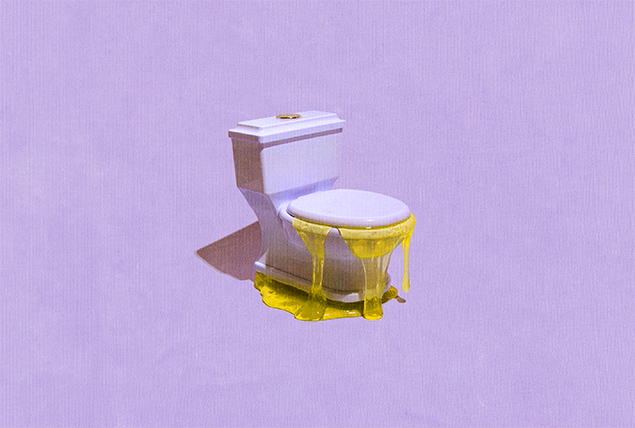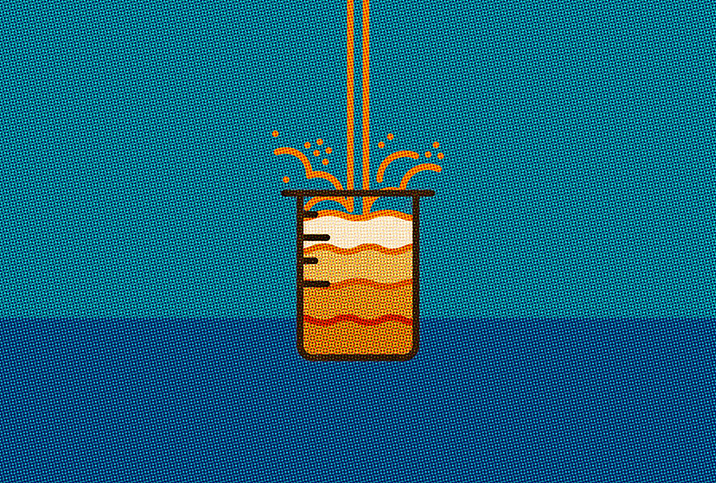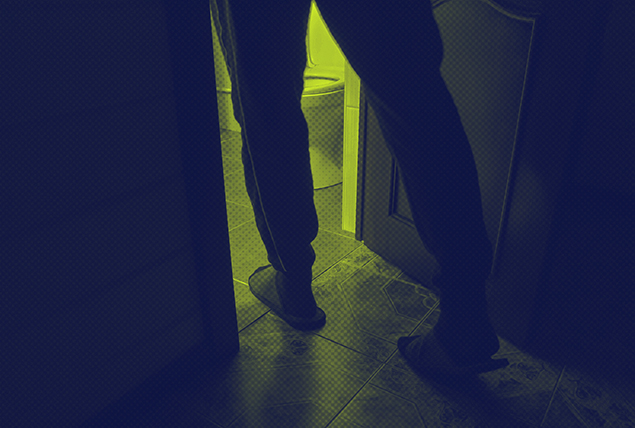Here's How to Live With and Manage Nocturia

Most people may associate nocturia with the image of an older man racing back and forth to the bathroom all night. Actually, it's a common urological condition experienced to some degree by about 1 in 3 people older than 30, according to research published by the National Library of Medicine.
Waking up one or more times during the night with an urgent need to urinate is the primary symptom of nocturia. Other manifestations of the condition include an increased need to urinate during the day, difficulty starting urination, a weak urine flow, pain or discomfort during urination, and fatigue or daytime sleepiness.
What are the causes of nocturia?
Nocturia often results from habits and lifestyle factors that include drinking fluids before bedtime, consuming alcohol or caffeine in the few hours before bedtime, smoking and a physically inactive lifestyle. Age is another cause, as are medications, medical conditions and hormonal changes, such as the ones that occur during pregnancy and menopause.
When nocturia inhibits your ability to perform daily activities such as driving or concentrating or when it impacts your quality of life, make an appointment with your primary care physician. If necessary, your doctor may refer you to a urologist or nephrologist for evaluation and treatment, including prevention of the complications that can accompany the condition.
How is nocturia diagnosed and treated?
Doctors diagnose nocturia by taking a detailed medical history, performing a physical examination, and interpreting diagnostic tests or labs. Your nocturia will be treated depending on what's causing your frequent urination, which could be factors ranging from lifestyle habits to underlying medical conditions. They may be able to show you how to avoid waking up to pee.
For many patients, lifestyle modifications may help reduce nocturia symptoms, according to James J. Elist, M.D., a urologist in Beverly Hills, California, who specializes in impotence and male sexual dysfunction. These measures may include reducing fluid intake before bedtime or limiting alcohol and caffeine consumption.
"Other treatment options may include medications to reduce urine production or relax bladder muscles, as well as treatment of underlying medical conditions [causing your nocturia] such as diabetes or sleep apnea," Elist said.
In many cases, people don't seek medical care when they first develop nocturia symptoms because of myths, misconceptions and stigma surrounding this common disorder. Specialists like Elist and David Shusterman, M.D., the chief physician and founder of New York Urology in New York City, dispel the rumors surrounding nocturia, explain its impact on your sex life and offer pointers for talking to your partner about your nocturia.
Eliminating the stigma surrounding nocturia
Cultural stigmas and personal feelings of embarrassment initially keep many patients from seeking the care they need for their nocturia symptoms.
"Many people may view [urinary symptoms] as private or taboo subjects," Elist said. "Patients may also be afraid of being judged or stigmatized by their healthcare provider, or they may feel that their symptoms are not severe enough to warrant medical attention."
Urologists aim to destigmatize this common condition and can offer support in addition to medical care as you advance through diagnosis and treatment.
"Healthcare providers can normalize the conversation by letting patients know that urinary symptoms are common and that many people experience them," he said. "We encourage patients to share their concerns and symptoms by creating a safe and supportive environment that fosters open communication, and we provide resources and self-management strategies that help patients better understand their condition and treatment options."
Myths and misconceptions about nocturia
Some common myths and misconceptions surround nocturia. Fortunately, experts can set the record straight.
Myth: Drinking less water will reduce your nocturia symptoms.
Reality: "Reducing fluid intake may decrease the amount of urine produced, but it can also lead to dehydration and other health issues," Elist said. "It's important to drink an adequate amount of water and other fluids to maintain proper hydration and urinary tract health."
The proper amount is about 11.5 cups a day for women and 15.5 cups for men, according to Mayo Clinic.
Myth: Nocturia is a normal part of aging.
Reality: "While it's true that urinary symptoms, including nocturia, become more common as people age, it is not a normal part of the aging process," Elist said. "Nocturia is often a symptom of an underlying medical condition and should be evaluated by a healthcare provider."
Myth: Nocturia only affects men.
Reality: Nocturia can affect anyone at any age, according to Elist. It is more common in older adults and women who have given birth.
Myth: Taking medication for nocturia is not safe.
Reality: Various medications are available to treat nocturia, including drugs that help reduce urine production or relax the bladder muscles.
"These medications are generally safe when taken as directed by a health care provider and can be effective in improving symptoms," Elist said. "Medications used to treat nocturia may cause side effects such as dry mouth, constipation or dizziness."
Nocturia and your sex life
Unfortunately, nocturia can negatively affect your sex life due to complications such as fatigue and pain. The multi-layered interplay between nocturia and your sex life includes factors such as pain, fatigue, sexual dysfunction and more.
Erectile dysfunction
Since nocturia puts pressure on the pelvic floor muscles, it can wear down or even damage the pelvic muscle structure. For men, this could result in difficulty achieving an erection.
Chronic fatigue
Constantly waking up in the middle of the night can lead to chronic fatigue and affect sexual health for everyone. Fatigue and decreased energy levels in turn affect sexual desire and performance. Poor sleep quality can also contribute to mood disorders such as depression and anxiety, which can further impact sexual health.
Pain during sex
Nocturia can cause physical discomfort or pain during sexual activity, particularly if the bladder is full or if the patient is experiencing urinary incontinence.
Side effects of nocturia treatments
Medications to treat nocturia, such as diuretics or alpha blockers, may have side effects that can affect sexual function.
How to talk to your partner about nocturia
Sexual partners are likely to be impacted by your nocturia symptoms, especially if they sleep lightly and awake each time you exit the bed. Experts have suggestions for how to sensitively and thoughtfully approach a conversation with your partner about your nocturia.
"Communicating any medical condition to a partner can be a difficult and sensitive subject," Shusterman said. "It's important to be honest and open about your nocturia and to approach the conversation with kindness, understanding and respect."
Elist suggested choosing a quiet and private moment and place to initiate a conversation in which both parties can give their undivided attention. He also recommended complete honesty.
Get the conversation started with a few pieces of pertinent information:
- How often you wake up during the night to urinate
- How it makes you feel
- Any impact it has on your daily life
"It may be uncomfortable to talk about, but it's important to be open. Share your concerns about the impact it has on your sleep, your health or your relationship, and discuss possible solutions for managing your nocturia with your partner," Elist said. "This may include lifestyle changes, such as reducing fluid intake before bedtime or avoiding alcohol and caffeine, or it may mean seeking medication or therapy."
How to manage nocturia in the long term
The good news is nocturia can be cured or effectively managed in most cases. The following are some tips and strategies for managing nocturia symptoms over time, according to Elist:
- Limit your fluid intake before bedtime. To reduce the frequency of bathroom visits at night, avoid drinking fluids before bedtime or limit intake of fluids in the evening.
- Monitor your caffeine and alcohol intake. Beverages that contain caffeine and alcohol can increase your urination frequency. Monitor your intake of these beverages and avoid them before bedtime.
- Empty your bladder before bedtime. That will reduce the chances of waking up in the middle of the night to urinate—and possibly waking up on the toilet.
- Practice pelvic floor exercises. Strengthening your pelvic floor muscles can improve bladder control and reduce the frequency of nocturia. Ask your doctor or a physical therapist for guidance on pelvic floor exercises.
- Treat the underlying medical conditions causing your nocturia. Nocturia can be caused by conditions including diabetes, urinary tract infections and sleep apnea. Manage these conditions to reduce the frequency of nocturia.
- Consider using absorbent products. If nocturia is causing you to frequently wake up to change your clothes or bedding, consider using absorbent products such as adult diapers or pads to manage leakage and stay dry.
Nocturia is way too common of a condition for anyone experiencing it to feel embarrassment or shame. Don't ignore it if you often need to wake up during the night to urinate. With help from a medical professional, who can teach you how to avoid waking up to pee, and medication, if necessary, you can manage or overcome nocturia and improve your overall and sexual health.


















